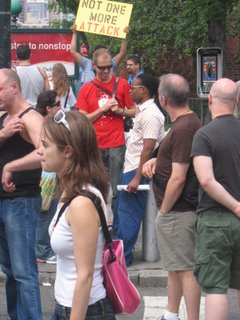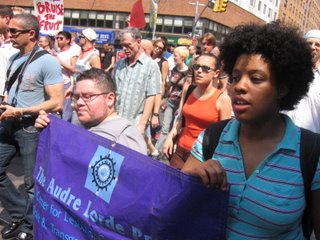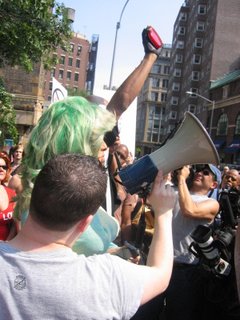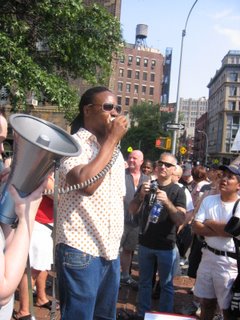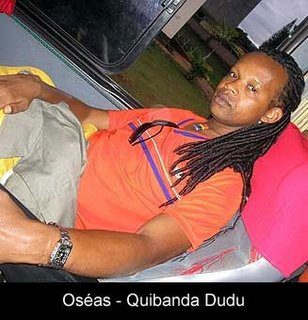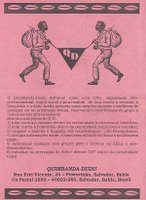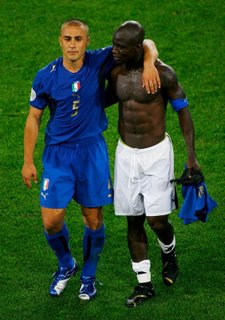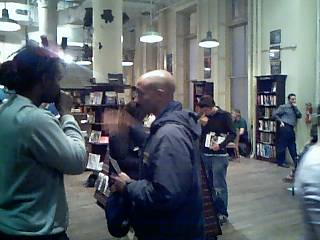What's been going onFor a range of reasons, I found it a little tough to post the entries I started this week, but here, finally, are several in a row.
Last Sunday was both
Father's Day--belated best wishes to all the fathers out there--and my birthday. A acquaintance sent me an email suggesting that as we get older we should start expanding birthdays to weeks and then months (and a friend of mine had already said a few years ago that he was going to do this, though he was only in his mid 30s), and while a day is fine for me, to all born in the month of June, under the signs of the twins or the crab, happy birthday!
Congratulations are due also to all of my students who graduated this year! You were a talented group and you will go far along whatever paths you choose.
I spent a good part of the week not only dealing with our own house-related matters, but also keeping watch on the workers who've been building a two-family structure on what was for years a huge, open, empty lot and occasional broken-down truck lot next to our home. In the process of throwing up a house that I hope is better constructed than I witnessed--picture poorly joined seams, hastily stapled on drywall, etc.--but which is being replicated all over Jersey City and which will bring the builder a pretty penny, they've knocked down the fence that stood between our properties, causing it to smash into the side of the house; repeatedly dumped trash and building debris into the yard; set a box of cheap siding on our roof, part of which had just been freshly coated with Silvercoat; and dropped a large cardboard box onto the telephone wires. Early on we had to venture down the litigious slope, but after approaching the brink, it's become an issue of documenting the crap they do and yelling at them to clean up their messes. As of today, they've clapped on all but the front and back siding, so it seems the mess from their remaining work on the building will mostly end up in the mudpatches that are their current front and back yards.
Thinking about activismAs I mentioned last week,
Larry Lyons II (whom I got to meet at the anti-LGBT violence march)
has posted his responses to the first of a series of questions posed to him about "activism." His response, full of the thoughfulness and elegance that are hallmarks of his blog, examines the notion that activism is "elitist." I was thinking as I headed to the anti-LGBT hate/violence march the other day that one way to think about activism, at least in terms of my own life, might be to place it within the context of a personal ethics, and more broadly a collective ethics. By this I mean activism, or my being an activist and acting conscientiously for positive change (for equality, for equal treatment of others under the law, for justice, for recognition to positive ends) represents one outcome of a particular ethical approach to life in which I act because it is part of my (and of others') ethical--and if applicable, moral--frameworks. Viewing activism this way allows a person to talk about it in its different modes and valences--a combinatorics of the political, social, economic, cultural, aesthetic--and situates it within a larger context that includes the private and public and what exists between them, as well as the extraordinary act and the everyday ones. The ethical, as its roots attest, points not only to customs but more specifically to customary behavior, from self-identified and elucidated, even if evolving, principles of duty and responsibility, that a person can put into practice on a regular (daily) basis. Activism thus can be something as basic as conscious and conscientious being in the world--if the world in which you exist expects that you will not exist, or aims to function as if you did not exist, or seeks to erase you and your presence; being, and thinking, are forms of activism in this view, and are forms and modes of action that anyone can undertake, not just an elite. In fact, most activism, I think, occurs in this way, and may at times may be unintended or unintentional, though its effects in the world are still effective. When personal ethics connect with collective ethics, when the person and her personal acts link to a larger goal, when they're replicated on a broader community and societal basis--I will work to work through my racism, my homophobia, my sexism and misogyny, my classism, etc., and I will work in concert with others to ensure that these plagues upon our society don't flourish, then change can occur. But even personal acts and activism can play a powerful role as well. Activism as it's commonly understood, then, conscious and conscientious, dedicated work on behalf of a cause, becomes one major tributary of the broader ethical framework a person may possess and function within. So I ultimately agree with Larry that it's
not elitist, particularly if a person views activism as more than what goes on in front of the cameras, what gets the most attention, what drawing the most funding. Most activism, the activism that takes place in our everyday lives and interactions, gets almost no coverage or attention at all, even though it's often (utterly) vital for our own and others' survival.
Assia Djebar seated in French Academy
Speaking of ethical activists,
Assia Djebar, one of the world's leading novelists and a signal figure in contemporary discussions of African, Arab, European immigrant, and transnational feminisms,
has become the first Arab woman elected to and seated at the truly elite Académie Française. (
Here's the announcement in French.) Djebar, born
Fatima Zohra Imalayan in 1932 in
Algeria, was the first woman from her country admitted to the extremely competitive École Normale Supérieur de Sèvres, and published her first novel,
La soif (Thirst, also translated as
Mischief) a year later, in 1956. Since then, she has published a series of novels that represent one of the highest and most sustained aesthetic and critical achievements in late 20th century literature. The works, which detail the struggles for self-determination, self-representation and self-voicing among Algerian women amidst colonialism, patriarchy and religious, economic, social and cultural constraints, include
The Women of Algeria in Their Rooms; the trio (really a quartet)
L'Amour, A Fantasia (which one of my undergraduate students wrote a brilliant thesis about this spring),
Ombre Sultane (translated as
A Sister), and
So Vast a Prison; Children of the New World; and
Far from Medina. Her previous awards include the Neustadt International Prize, the German Booksellers Friedenpreis, and the Venice Biennale Critics' Prize for her film
La nouba des femmes de Mont Chenoua. I strongly believe that she should receive the Nobel Prize for Literature in the next several years. She is also Professor of Francophone Literature and Civilization at
New York University.
At the ceremony yesterday, Djebar noted France's occupation of Algeria, from 1830 to 1962, which ended only with the horrific six-year war of liberation, and critiqued recent political rhetoric invoking colonialism, which she said represented "an immense wound" lived by four generations of her people. She also paid homage to the "numerous Algerians who today are battling for their right of citizenship," and to the victims of terrorism in her native country, which has been ruled by a military dictatorship for years. She added that she was accepting the chair, one of 40 for "immortals" of the French language, for "the recognition that that implies for Francophone literature from all the other countries," in particular for literature of the "Maghreb...but also from all African countries."
World CUpdatesOn the soccer front, the big news, at least for me, was the
US team's 2-1 loss to
Ghana, which sends the US team home and the "Black Stars" on to a second-round match against Brazil, which won all three of its matches, the third against Japan in impressive fashion. For the US, it'll be a return to the drawing board, both on the playing and coaching sides. In terms of the team itself, the US never appeared to have a viable scoring plan against any of its opponents, and must work on getting speedier players who know how to control the ball, take advantage of any rare opportunities to score, and also generate goals. Watching the
Argentinian, English, Brazilian, and
Portuguese teams' matches would certainly help the US. Part of the problem is that the US lacks a player who can elevate the team to the next level;
DaMarcus Beasley comes close, and after the first match, in which he played as if in a daze, he became one of the main playmakers, and factored in the lone goal the US scored, as well as the one that was disallowed in the second game. But Beasley and
Bobby Convey, who played well in all three games, cannot do it alone, and need a handful of forwards and midfielders who can leverage their talents. A glaring problem for the US was its weak middle defense.
Oguchi Onyewu certainly merits being included as one of the top "Sexies" by a local Spanish-language paper, but he really has got to hone his marking and tackling if he isn't going to be a liability for the team. His defensive errors factored into at least two of the goals scored against the US team, and the controversial foul he garnered in the penalty box in the game against Ghana led to a certain goal and the US team's departure. Outside of veteran
Eddie Pope, who missed the third game on a red card, the defense in general was as vigorous as light steam, and has to be completely overhauled if the US is to win even one game in
South Africa in 2010. The US Soccer Federation also may want to rethink its choice of coach. Bruce Arena had a great run in 2002, but his heart and head didn't seem in it this time. Instead of starting young scorer Eddie Johnson, he stuck with Brian McBride, costing the team at least three halves worth of potential goal-hunting, and his plan in general failed to take into account the different approaches the US was facing. The
Czech Republic kept up its attack and walloped the US;
Ghana, though missing key players, was also able to pierce the US's center repeatedly; in neither case did Arena take steady advantage of either team's holes or soft points. Only spirited defensive play led to the US's draw with
Italy, a shocker, but ties are not good enough to move the US forward. Perhaps the next coach will realize this, and also find a way to get the very best play out of the US team before the match. Scheduling friendly pre-Cup games against
Germany, England, Argentina, Brazil, Portugal, France, Ecuador, and
Spain, for example, may bruise the US team's ego, but it will also expose them to the best the world has to offer.

Ronaldo and Juninho Pernambucano of Brazil, exulting in Ronaldo's goal, as Alessandro Santos looks frustrated at left (AFP/afp.com)

French footballers Patrick Vieira and Florent Malouda celebrating (Vieira scored a goal against Togo today and set up another, which Thierry Henry scored) (AFP/afp.com)

DaMarcus Beasley going up for a ball against Stephen Appiah (AFP/afp.com)
As for the second round, there are some excellent match-ups, starting tomorrow. Germany meets Sweden (I pick Germany in this one), while Argentina meets Mexico (Argentina is the clear favorite). Upcoming matches pit Italy against Australia (a tough one given how well the Aussies have played, but I pick Italy), Switzerland against Ukraine (???--but Switzerland won its group, so I'll go with the Helvetians), England vs. Ecuador (this will be one of the matches to watch, and I hope Ecuador can pull off an upset), Portugal against the Netherlands (two of the best teams, but I think Portugal will win), Brazil against Ghana (Brazil is in a class of its own, as Ronaldo showed against Japan), and Spain against France (tough, because Spain is playing superbly but France has real stars, though they've struggled so far). Morehouse College to receive King papersJust a few weeks ago,
I posted about the pending auction at
Sotheby's of the late
Reverend Dr. Martin Luther King, Jr.'s private papers, which I hoped could be kept together and donated to an institution that would be able to be able to host them properly. According to an
article I just came across,
Morehouse College, one of the nation's premiere historically Black colleges (and the only all-male one) and Dr. King's undergraduate alma mater, will receive the papers, which were purchased from Sotheby's by a private consortium led by Atlanta mayor Shirley Franklin that includes businesses and individuals. The priceless papers were priced at between $15 to $30 million, but Sotheby's prior attempts to place the papers had not firmed up. This is the best possible outcome I could imagine short of the papers being donated to the
King Center itself.
Great spoof of RovismOn the hilarious front, as posted in Wonkette's column today, the
St. Petersburg Times has ignited a firestorm by publishing an
Andy Borowitz parody, "
Rove, Satan, plot GOP fall strategy," which was bylined under "compiled from Times sources." The article begins
At a joint press conference today in Washington, White House adviser Karl Rove said that he would be plotting the Republican Party’s fall election strategy with his longtime comrade-in-arms, Satan.
The Prince of Darkness, wearing his traditional red horns and cape and carrying a smoldering pitchfork, appeared to beam as Mr. Rove, his protege, talked about how much he was looking forward to working with him on the fall campaign.
“Every time Satan and I get together, good things happen,” Rove said, adding, “Or should I say - bad things happen!”
It just snarks on for a dozen or so more paragraphs, and it wasn't in The Onion! Let's have more of this Merry Pranksterism, please.
BTW: One of Germany's finest writers, Alexander Kluge, actually published a remarkable book of stories, Die Lücke, die der Teufel läßt. In Umfeld des Neuen Jahrhunderts (Suhrkamp, 2003), an ample selection of which were issued in translation by New Directions last year under the title The Devil's Blind Spot: Tales from the New Century. The book treats in fictional form a garland of themes related to Satan's (or something approximating Satan-as-a-concept's) ongoing influence in the world, ranging from European antiquity to the moment the current Iraq War begins. Several of the stories directly explore the idea of Satan in the Bush White House. Perhaps Borowitz read it, though I doubt it--but it's also worth checking out.

